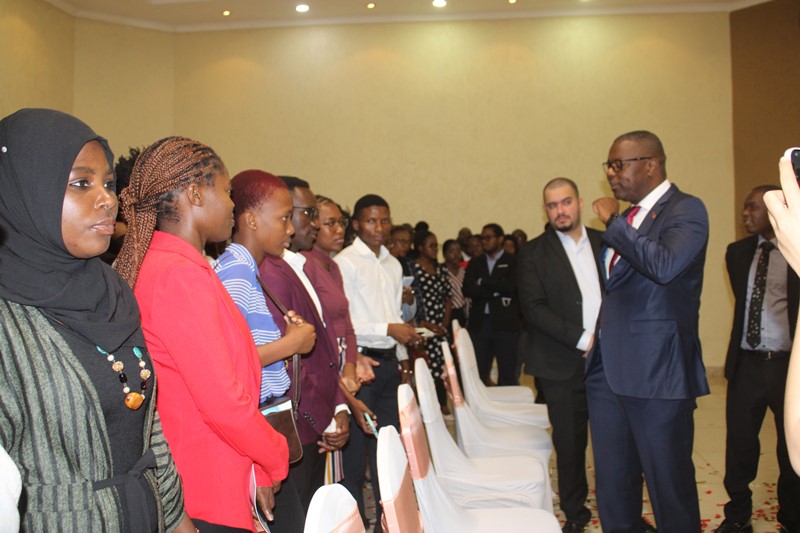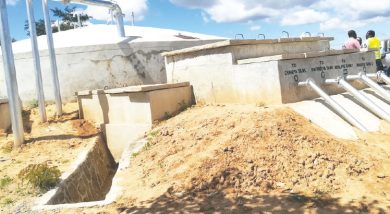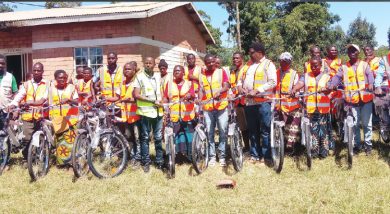`Enhancing MW2063 with increased ICT knowledge
One of the enablers of Malawi 2063 (MW2063), a blueprint aimed at making the country be ‘an inclusively wealthy and self-reliant industrialised upper-middle-income country by the year 2063’, is information and communication technology (ICT).
Under economic infrastructure theme, it says: “We shall have robust ICT infrastructure with cross-country coverage of reliable and affordable services fostering technological adoption and digital access as a country. We shall have a world-class digital economy that is globally competitive with, among other things, sound E-commerce, E-learning, E-health and E-governance systems.

“We shall promote investment in ICT infrastructure to increase digital access and technological adoption. We shall adopt robust telecommunications systems that are fast, reliable and affordable.
“We shall continue to embrace technology in a way that promotes development and use of inclusive financial systems. Financial services and products will be offered through diverse and modern digital financial platforms that are convenient, available and accessible to everyone, especially those in remote areas.”
Currently, only 13.8 percent of the population has access to Internet. As such, there is need to increase human capital by ensuring that many people have knowledge about ICT.
One institution that is driving the agenda is Huawei Technologies under its Seeds of the Future programme initiated in 2008. According to the programme’s brief background, its objective is to develop local ICT talent, enhance knowledge transfer, promote greater understanding in ICT and bridge communication between countries and cultures.
“This is the programme through which Huawei invests and imparts ICT skills and knowledge to the best ICT students recruited from leading tertiary institutions in Malawi,” it said.
Seeds for the Future establishment in 2008, but was initiated in Malawi in 2016. Between 2016 and 2019, 10 best ICT students were selected every year to go to China for ICT training and cultural experience.
But in 2020, training was postponed because of Covid-19 travel ban. The following year in 2021, a decision was made to have training in the country where 50 students were selected.
They came from University of Malawi (Unima), Malawi University of Science and Technology (Must), Malawi University of Business and Applied Sciences (Mubas), National Centre for Information and Technology, Mzuzu University, DMI St John Baptist University and Daeyaung University.
Last year alone, 100 students were selected from the above institutions but more were added like National Centre for Information and Technology (NCIT), Malawi Institute of Management (MIM), University of Agriculture and Natural Resources (Luanar) and Blantyre International University (BIU).
Speaking during the launch in November, Huawei Technologies managing director Gu Mu said he believed that by sharing ICT expertise and experiences in the global business environment, young people can learn about advanced technologies in the ICT industry and accumulate expertise and skills.
“As Huawei, we are proud and humbled that government has chosen us to be one of its mutual and trusted implementing partners for Malawi’s digital transformation.
“Huawei’s 16 years in Malawi aims to ensure that no one is left behind in this digital world,” he said, adding that in the past, his company partnered with the Ministry of Information and Digitisation to implement ICT related projects such as national back-bone fibre and last mile which have seen about 15 million Malawians access ICT services with ease.
The launch of the event attracted distinguished guests like Minister of Information and Digitisation Gospel Kazako and Chinese ambassador Long Zhou.
The ambassador said what Huawei is doing in Malawi is the fulfillment of Chinese President Xi Jinping’s agenda of ensuring that companies are involved in corporate social responsibility activities.
He said: “In November 2021, Chinese President Xi Jinping announced in his speech at the opening ceremony of the 8th Ministerial Meeting of the Forum on China-Africa Cooperation, to support the Alliance of Chinese Companies in Africa for corporate social responsibilities through the launch of the 100 Companies in 1000 Villages initiative.
“The event aims to advocate for more Chinese enterprises to actively fulfill their social responsibilities in Africa, promote high level development of China-Africa comprehensive strategic partnership, deepen China-Africa cooperation on the Belt and Road Initiative and promote the construction of a community shared destiny between China and Africa.”
Long noted that the 2022 Seeds for the Future project was an important step by Huawei Technologies to actively implement President Xi’s vision (100 companies in 1 000 villages).
Information and Digitisation minister Gospel Kazako, who attended the launch, said globally, nations that deliver their services backed by digital capabilities are registering tremendous progress than those that are still thinking twice about investing in digital technologies.
He described Huawei Technologies as ‘a true friend in the journey of building the digital capability of the nation’.
Said Kazako: “My ministry is currently having a dialogue with the Ministry of Education to revise our curriculum to ensure that digital studies are introduced even in primary and secondary schools.
“Investment in the foundation of our ICT skills is what will enable us to compete effectively with the rest of the world.”
The number of students attending the training has increased to 100. One of them, Martin Manyozo from Mubas who is pursuing a degree course in Business Administration, said although he is not in ICT sector, he believes that it will still help him in the marketing world.
He said: “Although I am not in the ICT field, I was chosen because I was one of the best students at the university. Everything has gone digital these days. You cannot do entrepreneurship without ICT knowledge and with this training, I see a bright future.”
Manyozo said the training has also enabled him to network with students from different universities.
Ends.





